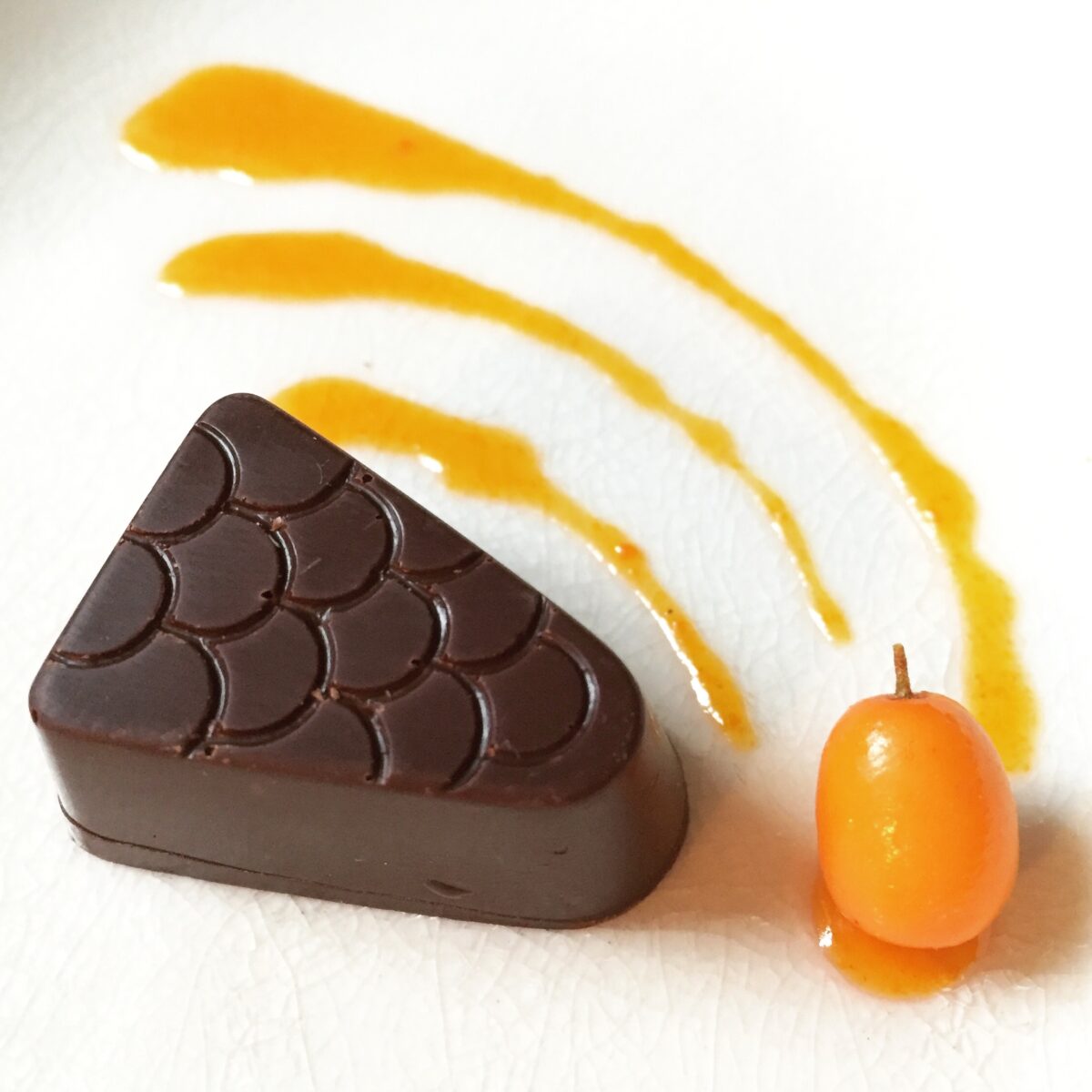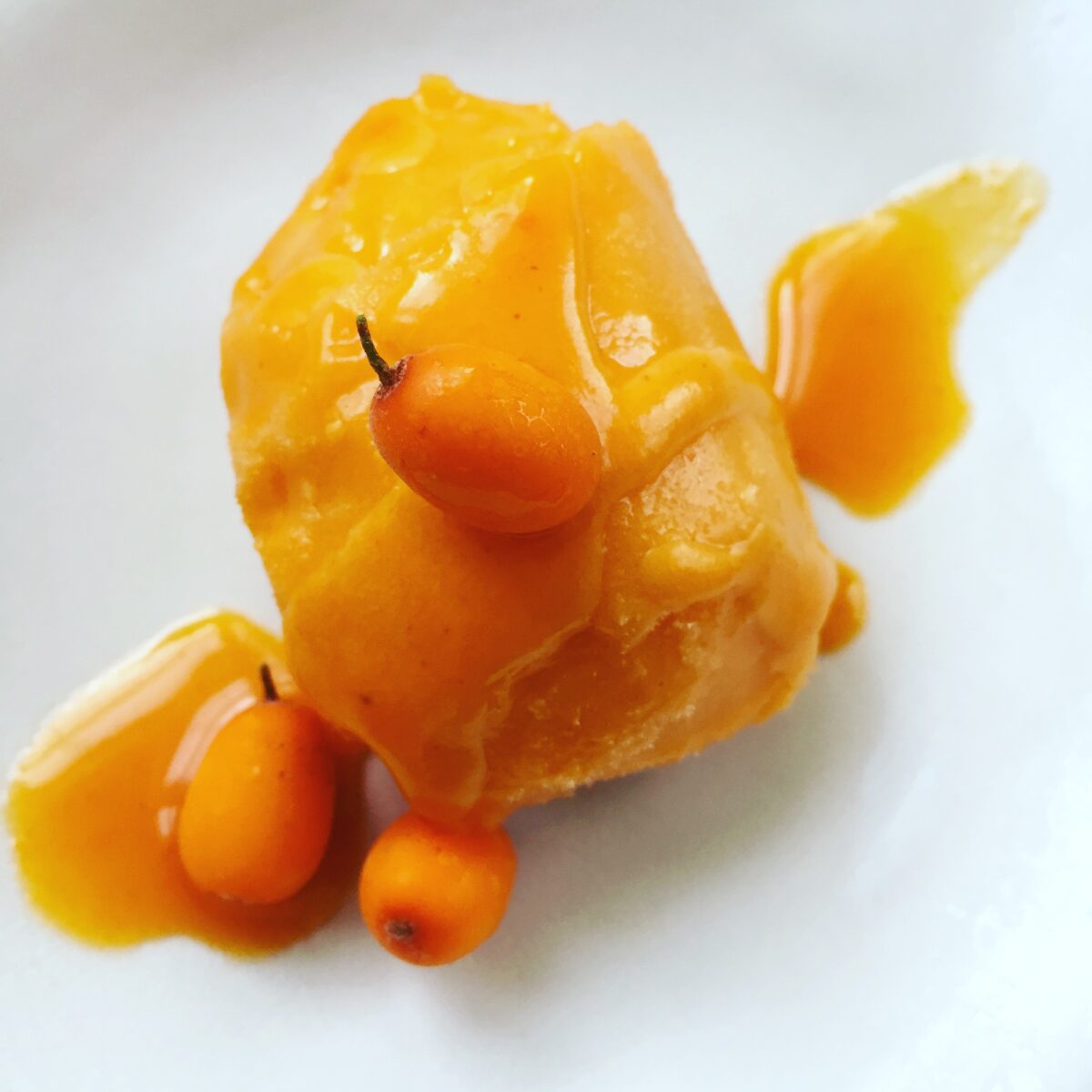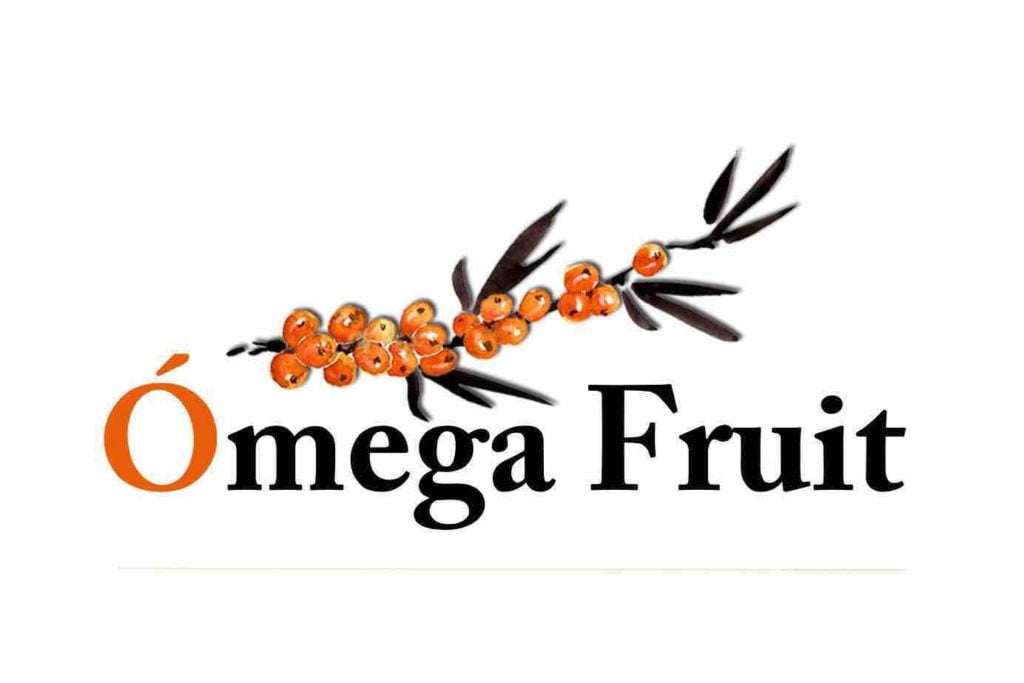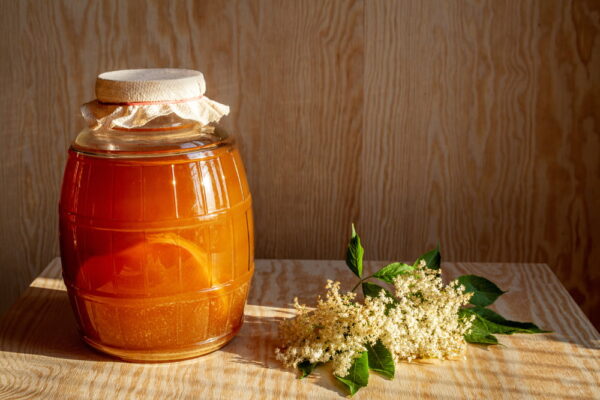Is The Sea Buckthorn Berry An Antioxidant Rich Food?
What do antioxidants do in our body? Is the sea buckthorn berry truly deserving of its antioxidant-rich status? To answer this question, it’s crucial to

In the vast landscape of natural supplements, Sea Buckthorn emerges as a compelling contender for daily incorporation into one’s regimen. Amidst a market flooded with various products with claims of natural origins, the simple, unprocessed, seaberry stands out for its tangible nutritional value and diverse array of beneficial compounds. With its rich mineral composition, vitamin bounty, phytochemical richness, fatty acid profile, and antioxidant potency, Sea Buckthorn embodies the essence of a holistic natural supplement. Whether you’re exploring new avenues for enhancing well-being or seeking a new addition to your daily routine, Sea Buckthorn berries are an undeniably wholesome food that could help maintain vitality and health.
Are you considering taking sea buckthorn berries as a daily natural supplement?
Here is an extensive list highlighting the diverse array of beneficial compounds present in sea buckthorn, contributing to its nutritional value.
Sea buckthorn berries contain several minerals, although their exact composition may vary depending on factors such as soil quality and growing conditions. Some of the minerals found in sea buckthorn berries include:
Potassium: Important for regulating fluid balance, muscle contractions, and nerve signals.
Calcium: Essential for bone health, muscle function, and nerve transmission.
Magnesium: Involved in hundreds of biochemical reactions in the body, including energy production, muscle function, and DNA synthesis.
Phosphorus: Important for bone and teeth formation, energy metabolism, and cell structure.
Iron: Necessary for oxygen transport in the blood and the production of hemoglobin and red blood cells.
Manganese: Acts as a cofactor for various enzymes involved in metabolism, bone formation, and antioxidant defense.
Zinc: Essential for immune function, wound healing, and DNA synthesis.
Copper: Important for iron metabolism, connective tissue formation, and antioxidant defense.
Selenium: Acts as an antioxidant, supporting immune function and thyroid health.
Sodium: Helps maintain fluid balance and is involved in nerve function and muscle contractions.
Chloride: Important for fluid balance, acid-base balance, and nerve function.
Sulphur: Essential component of amino acids, vitamins, and antioxidants, playing a role in various biochemical processes.
These minerals contribute to the overall nutritional value of sea buckthorn berries and support various physiological functions in the body when consumed as part of a balanced diet.

Sea buckthorn berries provide a diverse array of vitamins that are known to support the immune system, fight oxidative stress, and promote healthy cell production.
Vitamin C: Known for its antioxidant properties, vitamin C helps boost the immune system, promote collagen synthesis, and protect against oxidative stress.
Vitamin E: A fat-soluble antioxidant, vitamin E helps protect cell membranes from damage caused by free radicals, thereby supporting skin health and immune function.
Vitamin A: Sea buckthorn berries contain beta-carotene, a precursor to vitamin A, which is essential for vision, immune function, and skin health.
Vitamin K: Important for blood clotting and bone health, vitamin K is found in small amounts in sea buckthorn berries.
Vitamin B1 (Thiamine): Involved in energy metabolism and nerve function, thiamine contributes to overall health and vitality.
Vitamin B2 (Riboflavin): Essential for energy production and maintaining healthy skin, eyes, and nervous system.
Vitamin B3 (Niacin): Supports energy metabolism and helps maintain healthy skin, digestive system, and nervous system.
Vitamin B6 (Pyridoxine): Plays a crucial role in amino acid metabolism, neurotransmitter synthesis, and immune function.
Vitamin B9 (Folate): Important for DNA synthesis, cell division, and red blood cell formation.
Vitamin B12 (Cobalamin): Essential for nerve function, DNA synthesis, and red blood cell production.

Triterpenes: Beta-sitosterol and lupeol are triterpenes found in sea buckthorn berries. Triterpenes exhibit anti-inflammatory and antioxidant properties, potentially reducing inflammation and oxidative stress in the body.
Tocopherols and Tocotrienols: These are forms of vitamin E with potent antioxidant effects, protecting cells from oxidative damage and supporting cardiovascular health.
Carotenoids: Sea buckthorn berries contain carotenoids like alpha-carotene and beta-cryptoxanthin, which act as antioxidants, supporting eye health, immune function, and skin protection from UV radiation.
Sterols and Phytosterols: Beta-sitosterol and other phytosterols in sea buckthorn berries can help lower cholesterol levels and support heart health.
Betaine: Betaine is a natural compound that supports liver function, aids in detoxification processes, and may help reduce inflammation.
Pectins: Pectins are soluble fibers that support digestive health by promoting regular bowel movements and helping maintain healthy cholesterol levels.
Polyphenols: Polyphenols are antioxidants that have anti-inflammatory and anticancer properties, contributing to overall health and disease prevention.
Alkaloids: While present in small amounts, alkaloids in sea buckthorn berries may have mild analgesic or antimicrobial effects.
Saponins: Saponins have immune-modulating and cholesterol-lowering properties, potentially reducing the risk of cardiovascular disease and supporting immune function.
Resins, Essential Oils, Terpenes: These compounds contribute to the aromatic and flavor profile of sea buckthorn berries and may have antimicrobial or anti-inflammatory effects.
Polysaccharides: Polysaccharides in sea buckthorn berries can support immune function and promote gut health by serving as prebiotics for beneficial gut bacteria.
Overall, the diverse array of phytochemicals in sea buckthorn berries offers various health benefits, including antioxidant protection, anti-inflammatory effects, cardiovascular support, and immune modulation.
Fatty acids play essential roles in maintaining overall health and well-being, including supporting brain function, cardiovascular health, immune function, skin health, and reducing inflammation. The fatty acids found in sea buckthorn berries, including omega-3, omega-6, omega-7, and omega-9 fatty acids, offer numerous health benefits:
Omega-3 Fatty Acids (EPA and DHA): EPA and DHA are essential for brain health, cognitive function, and cardiovascular health. They have anti-inflammatory properties, helping reduce inflammation throughout the body, which can lower the risk of chronic diseases like heart disease, arthritis, and certain cancers. EPA and DHA also support eye health, mood regulation, and healthy skin.
Omega-6 Fatty Acids (Linoleic Acid and GLA): Linoleic acid is a precursor to GLA, which has anti-inflammatory properties and supports skin health, hormone balance, and immune function. Omega-6 fatty acids are essential for cell membrane structure and function, hormone production, and inflammatory responses. However, excessive consumption of omega-6 fatty acids relative to omega-3s may contribute to inflammation and increase the risk of certain health conditions.
Omega-7 Fatty Acids (Palmitoleic Acid): Omega-7 fatty acids, such as palmitoleic acid, have anti-inflammatory and lipid-regulating properties. They support skin health by promoting hydration and elasticity and have been shown to help with wound healing. Omega-7 also supports cardiovascular health by improving cholesterol levels and reducing inflammation in blood vessels. Furthermore, omega-7 can aid in maintaining healthy weight and metabolic function by enhancing insulin sensitivity.
Omega-9 Fatty Acids (Oleic Acid): Oleic acid is a monounsaturated fatty acid that supports heart health by helping lower LDL cholesterol levels while maintaining or increasing HDL cholesterol levels. It also has anti-inflammatory properties and supports insulin sensitivity, which can benefit individuals with diabetes or metabolic syndrome. Additionally, oleic acid promotes skin health and may help reduce the risk of certain cancers.

Since I’ve already done somewhat of a deep dive into antioxidants and oxidative stress in a previous article; I’ll leave a more extensive list of antioxidants found in sea buckthorn berries here. And invite you to click the link below to read my article on Antioxidants and Sea Buckthorn.
Antioxidants:
What do antioxidants do in our body? Is the sea buckthorn berry truly deserving of its antioxidant-rich status? To answer this question, it’s crucial to
In addition to the numerous vitamins, minerals, antioxidants, fatty acids, and phytochemicals mentioned above, sea buckthorn contains several other beneficial compounds contributing to its health-promoting properties. Some of these include:
Amino Acids: Sea buckthorn contains various amino acids, which are the building blocks of protein and essential for numerous physiological processes in the body.
Fibre: Sea buckthorn is a good source of dietary fibre, which supports digestive health, regulates blood sugar levels, and promotes feelings of fullness.
Plant Sterols: Sea buckthorn contains plant sterols, which have been shown to help lower cholesterol levels and support heart health.
Organic Acids: Sea buckthorn contains organic acids such as malic acid and citric acid, which contribute to its tart flavour and may have potential health benefits.
Essential Minerals: In addition to the major minerals mentioned earlier, sea buckthorn also contains trace minerals such as chromium, iodine, and molybdenum, which are essential for various metabolic functions.
Essential Sugars: Sea buckthorn contains certain sugars like xylose and arabinose, which may have prebiotic effects and support gut health by promoting the growth of beneficial gut bacteria.
Betalains: Some varieties of sea buckthorn may contain betalains, pigments with antioxidant and anti-inflammatory properties that contribute to overall health.
Tannins: Sea buckthorn contains tannins, which have astringent properties and may contribute to its potential benefits for skin health and wound healing.
Sea buckthorn is generally considered safe as a food, and some studies suggest it is also safe when used medicinally.
However, we are all made uniquely and respond differently to foods and medicines. According to WebMD, there are some things to consider before eating seaberries daily for supplement purposes.
Side Effects: Sea buckthorn has been associated with very few side effects. However, individuals with high blood pressure have reported symptoms such as swelling, headaches, dizziness, and palpitations. When applied to the skin for burn treatment, it has occasionally caused rashes.
Risks: Sea buckthorn can thin the blood, potentially leading to bleeding. It may also lower blood sugar levels, posing a risk for people with diabetes who are on blood sugar-lowering medications.
Interactions: Using sea buckthorn in conjunction with blood-thinning medications or over-the-counter supplements could increase the likelihood of bleeding.
Overall, sea buckthorn is a rich source of diverse bioactive compounds that offer a wide range of potential health benefits, making it a valuable addition to a balanced diet and lifestyle.
However, make sure to inform your doctor about all the supplements you are using, including natural ones. This will allow your doctor to monitor for any possible side effects or interactions with your medications, foods, or other herbs and supplements.
BENEFITS
With 70% of our immune system residing in our gut, what we put into it, counts! Sea buckthorn juice is known to help achieve balanced nutrient intake, cold and flu resistance and increased energy levels. It’s inflammation reducing antioxidants help athletes fight body fatigue, and the balanced Omegas fatty acids 3 – 6, 7* & 9, are considered to have a clear role in the prevention and healing of certain Atopic disorders.

Sea buckthorn coulis

Delicious Sea buckthorn ganache inside dark chocolat shell.

Halibut with sea buckthorn, tomato and sea beans.

Homemade Seaberry sorbet.
 Frozen Sea Buckthorn berries (IQF)
Frozen Sea Buckthorn berries (IQF)
 Sea Buckthorn Shrubs | cultivar: LORD
Sea Buckthorn Shrubs | cultivar: LORD


A Brief History of Kombucha Centuries before we could identify probiotic microbes with microscopes, people were fermenting

Add a healthy punch to your summer cocktails Summer is perfect for patio chit-chats with close

Should Sea Buckthorn be considered a natural supplement? In the vast landscape of natural supplements, Sea